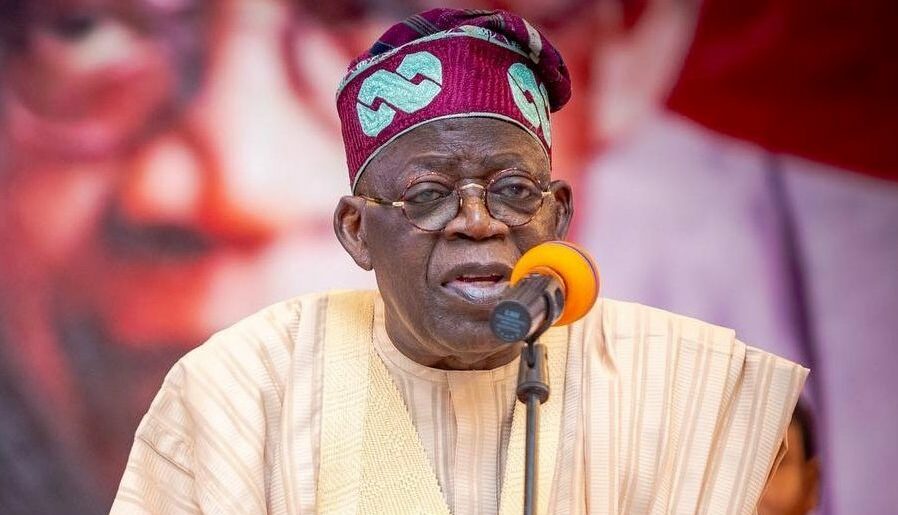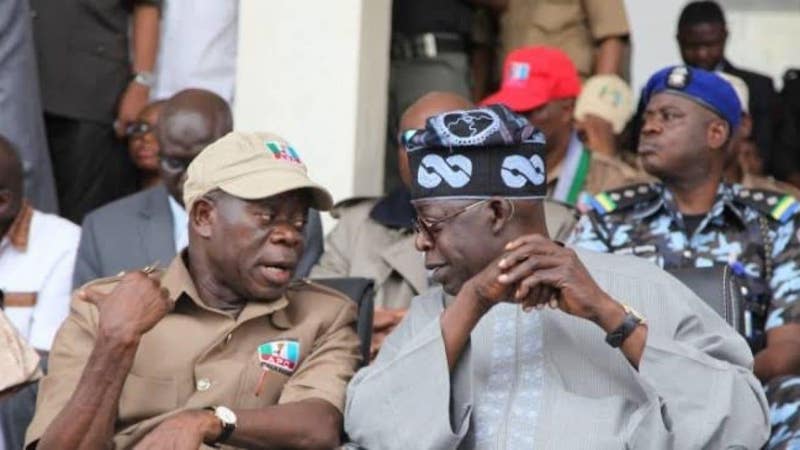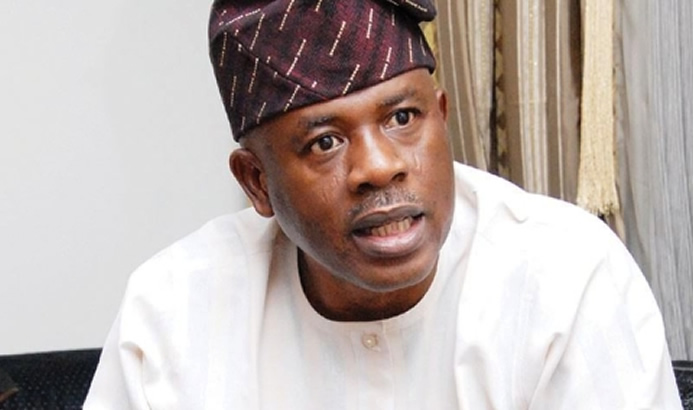By Pastor Sunday Adelaja
There is no day I read or watch a program about Nigeria that I don’t hear people expressing their frustrations on how Nigeria has failed as a nation. This sentiment is more often expressed by Nigerians themselves, especially those we regard as elites, both within and outside the country. It is this frustration of unmet expectations that has led to a myriad of national crises like, EndSars Movement, IPOB, Yoruba Nation movement for self determination etc. It has led to societal evils like, kidnappings, Boko Haram terrorist group, armed robbery, banditry, Fulani Herdsmen terror etc.
This anger of our people is mainly blamed on bad leadership. We have been complaining about bad leadership in this country since it’s first day as an independent country, yet we don’t seem to be getting closer to the expected solution. While I agree that we surely have a leadership problem, I will like to point out in this article the singular reason why our standard of living has remained low, despite the best efforts of our leaders. I will also state here that even if we bring the best leaders in the world to rule Nigeria, if this particular problem is not addressed and intentionally resolved then any leader will fail to give a better standard of living to our people.
So, I’m addressing this open letter to all appointed officials of our country, especially to the lawmakers. Our lawmakers must move quickly to reduce the rate of growth of our population. Nigeria adds over 5 million newborns to our already hungry population every year. In 2022 alone we added 5.2 million people, yet we are not able to feed the already over 200 million people in our country. Our main problem as a nation is that we don’t produce as fast as our population growth, such that our productivity is several times the growth of our population. Unfortunately, for most of our years of independence, our population has always outgrown our productivity. In simple terms, if we take a family as an example, the family of 5 needs 100 dollars a month to survive, but we are trying to feed 20 people with it. That is a recipe for hunger, if the number of the family members are reduced to 3 or 4 their standard of living will be higher than that of a 20 family members even if the income remains the same 100 dollars.
We as a country need an urgent “population growth break”. We need to learn from the western world and from China. Let’s declare a “moratorium” on population growth in Nigeria. We can do this as a temporary measure maybe for the next 10-15 years, when no family should have more than 3 children or not to have more than 3 children per woman. So in this 10-15 years period we could focus on educating all our already born children, develop our human capital resources, give skills to our population, make our people more competitive on the world stage, eradicate illiteracy, develop medical facilities, build enough schools etc.
We cannot afford to leave this process for the nature to regulate things by itself automatically, this is what we’ve done so far and it’s the main reason why our people are poor. The difference between a bush and a garden is that, the bush is left to itself while the garden is tendered and constantly regulated. In gardens you cut and trim the trees, plants, grass. Hence the garden is more beautiful, more attractive. It’s the same thing with developed nations, things are monitored and regulated through various methods, either through the law or through other social economic formulas.
Please take your time to carefully read the comparison I’m providing below between the United Kingdom and Nigeria, from independence till date, it’ll help understand better the importance of the point I’m trying to make in this article.
NIGERIA’S UNREGULATED POPULATION GROWTH IS OUR ALBATROSS
Compare the achievements and track records of Nigeria to those of the great nations of the world today when they were 60 years or even when they were 100 years old as independent and sovereign countries, in particular countries like England and USA. You can only objectively assess a situation when there is something to compare it to.
1. If not for our unregulated population growth, Nigeria would have been assessed more highly than the tiger nations of Korea, Singapore or Taiwan, as you’ll see below.
2. If we had regulated our population to grow same rate as for example England we would have been living better than some countries in Europe.
3. Despite all our numerous failures, our results in economic growth can only be compared to that of middle belt nations of Kuwait, UAE, Qatar, and Japan. I’m presenting the facts to you here so please put aside your emotions and consider them.
4. In 1960 our GDP was 4 billion dollars approximately, to a population of 45 million, which means the per capita was 88 US dollars per citizen.
5. Today if we only take 400 billion as our GDP to 215 million people it makes our per capita to be at 2,300 US dollars. Remember this is from 88 dollars per capital at independence. How many times growth is that?
6. Our GDP growth is one of the highest in the history of the world, better and faster than that of America or Great Britain, 400 times, or 10.000% since independence. Remember I’m only using 400 billion as our GDP benchmark, even though we are close to 500 billion now.
7. The population growth since 1960 is 377% growth rate. This is the genesis of our sorrow as a nation.
8. Meanwhile the British population grew by only 30% in 60 years from 52.4 million to 68 million.
9. At the same time the per capita growth of Britain economy is 3.000%
10. Their GDP grew at the same period is 3.600% in Britain. Notice that their real nominal GDP growth is almost at par with their growth per capita.
11. If our per capita (or population) was to grow as our nominal GDP which is 10.000%, then the standard of living of our people would have increased 10.000% but unfortunately that’s not the case because our population has completely consumed our growth, such that it hardly shows in our per capita.
12. Our economy has grown by 800% yearly in the last 60 years. As of 1960 our GDP per capita was 88 dollars, today it is 2,300 dollars. So we have a growth of 2,500%, as against the UK with 3.000% per capita growth, while their GDP growth for some period was 3.600% growth.
13. Compare that to Nigeria’s GDP growth at 10.000%, if our population has grown same rate as that of Britain, our standard of living should have increased by 8000% percent as against 2,500% increase we have now.
14. The reason for 2,500% growth in the standard of living of our people from 1960 till now is because we didn’t control our population growth like Britain did.
15. Presently our population grows by 2.6% or 5 million every year, it’s a big problem that our government unfortunately is not taking seriously yet.
16. Meanwhile Britain is 0.5% growth in population. So what if we only grew by 30% in 60 years like Britain in our population we should be 58 million people now, meaning our standard of living would have been among the best in the world.
17. We could have been on the same living standards with Turkey, Mexico, Argentina, Brazil etc.
18. We need to maximize our human capital resources to produce at a faster rate than the population growth. If our government want a free fall population growth for Nigeria then they must work so hard as to make the economy grow at several times faster rate than the population growth.
19. In Nigeria only 20-25% are productively competitive in the economy, meaning these are the only skilled work force we have unlike in Europe where it stands at 75% to 90% skilled workers level.
20. How can we possibly compete with the world if our human capital resources is so low. No European country can function at such a low level of human capital development. Can you imagine the UK using only 30% of their working population to sustain the economy? It’ll be catastrophic for the British economy.
21. But that’s what we have In Nigeria. 50% of our people are not skilled workers we cannot compete with even smaller countries who put most their population to productive work.
22. Our human capital development is catastrophic. We grew thanks to oil which led to people running away from the farms.
23. Now it’s time to move away from dependency on raw materials. It’s time for human capital development so our future economy will be based on human capital maximisation like in the rest of the world.
24. If we do, then we will be poised to overtake England and all European countries in the near future. I strongly believe that if we put our acts together in the next twenty years we can grow an economy bigger than any of the countries in Europe.
25. A good example is Brazil. Portugal colonised Brazil in the past, but today they have changed their own story. Brazil’s economy is 1.5 trillion dollars, while Portugal is 230 billion, which is six times bigger or 552% bigger than that of their former colonial master.
26. Nigeria must do the same, build a bigger economy than the country that colonised us. It’s not a dream it’s a near future possibility, especially if we maximise our human capital development.
27. Nigeria’s economy is projected to rank among the world’s top ten economies by 2050 with Gross Domestic Product (GDP) of $6.4 trillion.
28. A report by PwC states that Nigeria, Indonesia and Mexico could displace the United Kingdom and France out of the top ten economies by 2050.
29. Nigeria could sustain average growth of around 5-6% per annum in the long run, if she does she’ll attain this goal.
30. I believe in the Nigerian resilient spirit, with good leadership and purposeful policies we will get there.
HOW TO RESOLVE OUR NATIONAL PROBLEMS
1. These are the biggest and most urgent problems I see in Nigeria as an entity, if we can fix these issues below our future is promising and bright.
2. An underdeveloped people is a liability, 60% literacy: We need to aggressively develop our human capital resources. A nation with the highest number of out of school children is not serious about development.
3. Lack of values and ignorance of how to develop them: It’s like our government and people in general don’t have an understanding of the role of value system in national development. We need to intentionally study and build values into our people and into the entire fabrics of our society.
4. Unregulated population growth and lack of Family planning: A matter of great shame to us as a nation is our income per capita. This problem will persist until we do something about our rate of population growth. We need to learn from China and begin to enforce family planning right now. We can start by limiting a woman to maximum 3 children and maximum of 6 per family or per father.
5. Lack of law and order: Unfortunately our country has not learnt to live by law and order. Yes we have parliament but we lack the culture of abiding by the law. This factor alone could propel us to become a civilized country. This will take a hard work in cultivating a new mind set in our people.
6. Biometric registration of all Nigerians: Statistics and figures are not a part of our culture yet. We must know that information and biometric data of every citizen and foreigners in our country must be a matter of highest priority. As long as we don’t have the data of every person living in our country, then we don’t have a country. We are only doing imitation of a country. It is the very basic requirement for us to call ourselves a country.
7. The elites vs the poor: Our society is build on feudalism principles when a man that has is worshipped by the have nots. Hence everyone else wants to attain some level of power either political or financial so they’ll also be adored by their countrymen. This must change if we are to build a truly civilized society. We need to make all equal before God and before the law. We must strive to build an egalitarian country, instead of a bourgeoisie class conscious country we are presently running.
8. No to secessions, yes to reconstruction: Our diversity is one of our greatest blessings by God. We should not let some separatist elements poison our feelings towards one another. We are better together hence we must all fight against all sorts of secessionist movements in our country. Unless you want your children to become refugees like Syrians, Liberians, Ukrainians or Sierra Leonians who had the bad luck of being forced out of their lands because of separatist wars.
9. Representative Democracy of all major groups in the nation: Nigerians like to blame leadership for all their woes, while there is a truth to this, it’s not exactly as our people see it to be. Leadership doesn’t compose of only the president and the parliament, but all citizens of the land. We are all responsible for the well being of our country. We all should show leadership and participate in the leadership of the land. By taking responsibility for where we are we become the leaders there. This mindset must be drilled into our people, such that we don’t simply wait for someone to do something for us but rather to individually take responsibility to build the kind of country we want for ourselves.
10. Religion must be guided and regulated: Religion is supposed to be a positive force in nation building if well channeled but with the way religion is given free fall in our country, it could become the greatest threat to our nationhood. The government must be bold enough to develop a set of rules by which all religions in the country must agree to abide. All must be equal before the law including religious organizations.
To execute these recommendations especially in regards to the “moratorium on population growth” in Nigeria we will definitely need courageous and daring leaders. I understand that it’s going to be a Herculean task for any leader to undertake. Yet, this is something that must be done if we don’t want to keep swimming in the ocean of un resolvable problems. I’m aware of the type of resistance that will come from our religious bodies, both Muslims and Christians. Our traditional beliefs and superstitions will also raise an obstacle or two, but leadership is about daring to do the best things at all times, no matter how unpopular they could seem in the temporary.
I believe that our new president elect has the boldness and courage required for such a revolutionary move, but he won’t be able to do this without the support of the National Assembly and all our appointed officials across the country. Hence I am addressing this open letter to all appointed officials of the Federal Republic Of Nigeria. Yes, I don’t doubt the fact that under Tinubu we could grow our economy faster, even attaining 10-15% growth rate. Nevertheless, even if we do, we will still remain a poor country if our population growth continues to skyrocket like now. Something must give!!!
According to a study by The Lancet, Nigeria’s population is expected to treble in size to 3.4 billion by 2100 (bbc.com). Nigeria’s population is growing at 2.6% a year, one of the fastest rates globally (theconversation.com). Uncontrolled population growth can lead to several problems such as increased poverty, unemployment, food insecurity, environmental degradation and social unrest (vanguardngr.com).
We need a break, we need a policy, we must slow down the population growth and then accelerate the industrial and economic development at 10-15% growth for the next 20 years for Nigeria to become one of the 10 top nations in the world. Not just in GDP but also in standard of living. If we don’t address this problem now, we risk passing it down to our unborn generation. But worse still, we could continue to witness more social economic crises that could lead to the collapse of the country. People will continue to demonize the leadership, not knowing that their poverty is as a result of their uncontrolled national libido.
Well, I have written too many words here today, meanwhile we know that a word is enough for the wise. I hope and pray, that this gets to the hands and hearts of those who are elected to resolve such problems as this.
May Nigeria Succeed And May All Her Enemies Live Long To Witness It.
For The Love Of God, Church And Nation
Dr. Sunday Adelaja
Kyiv, Ukraine.
2023









